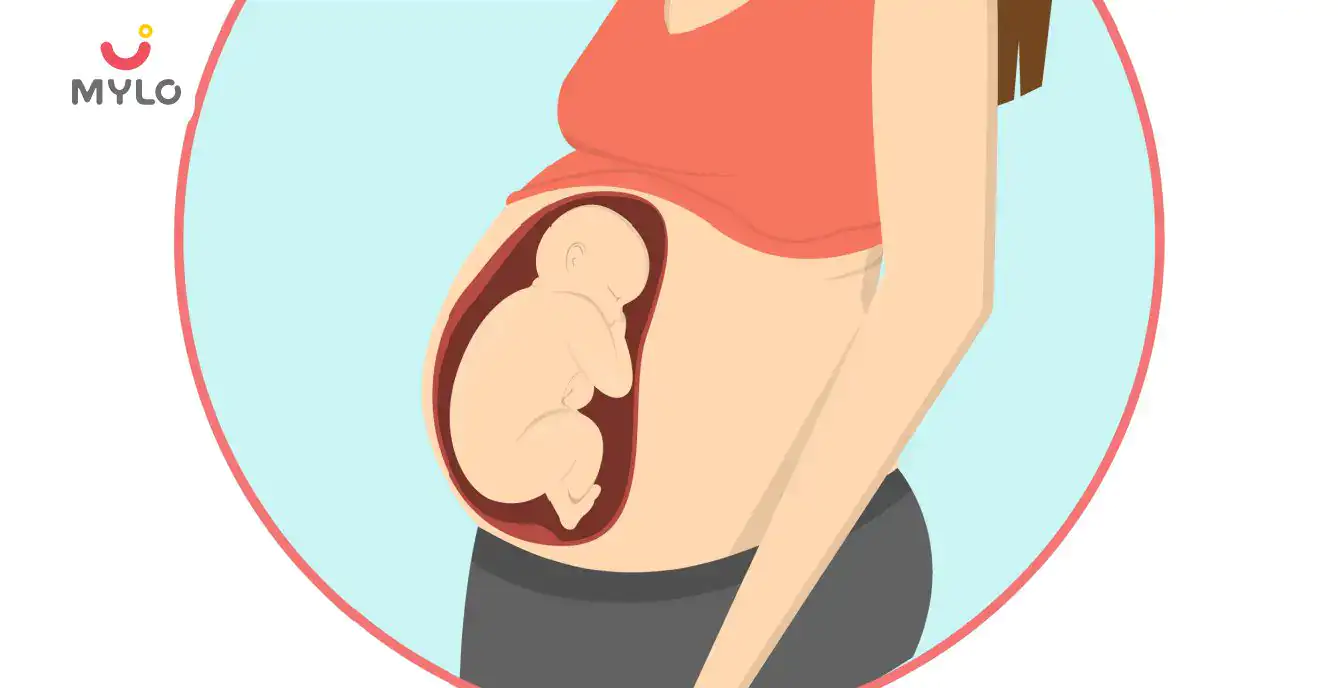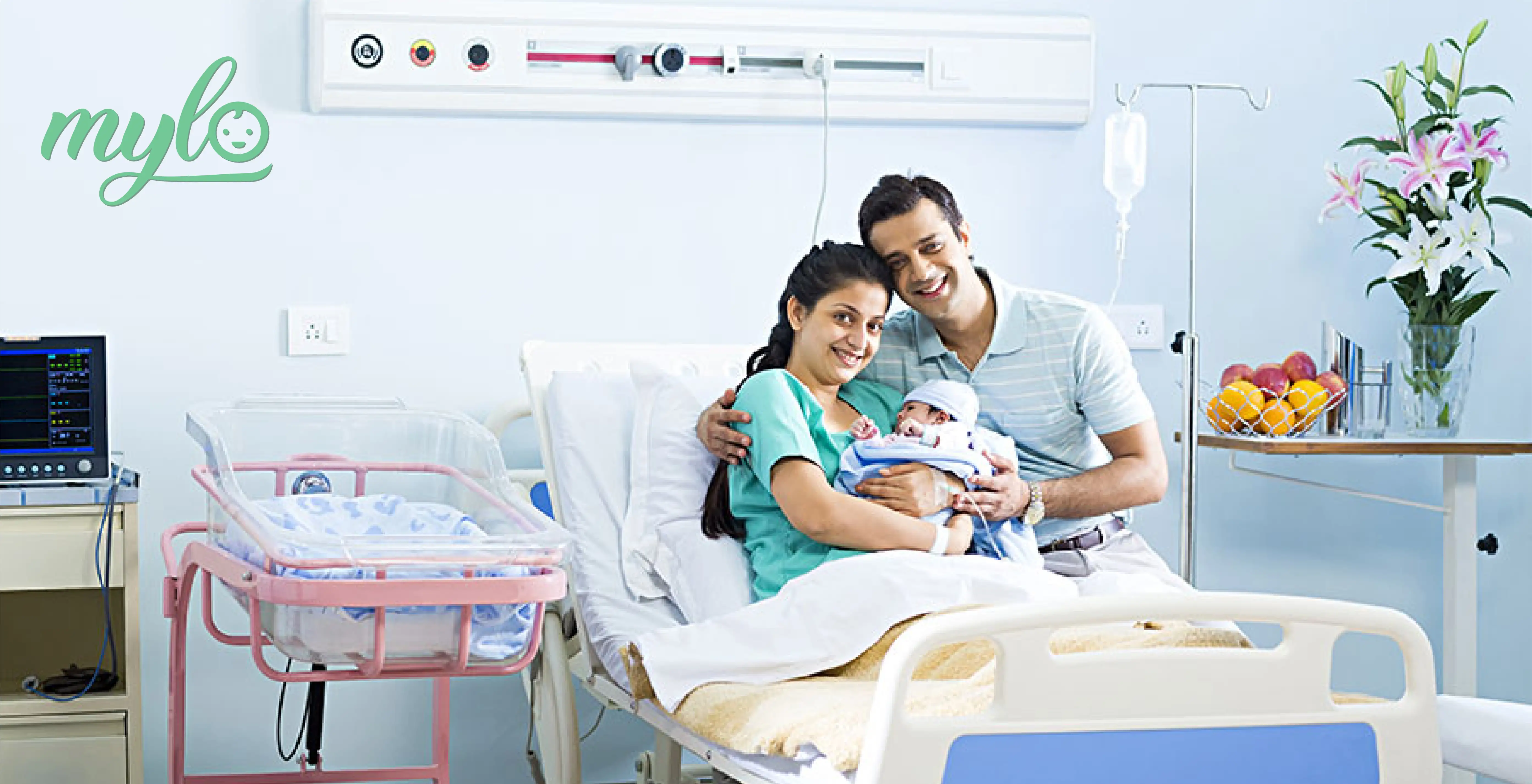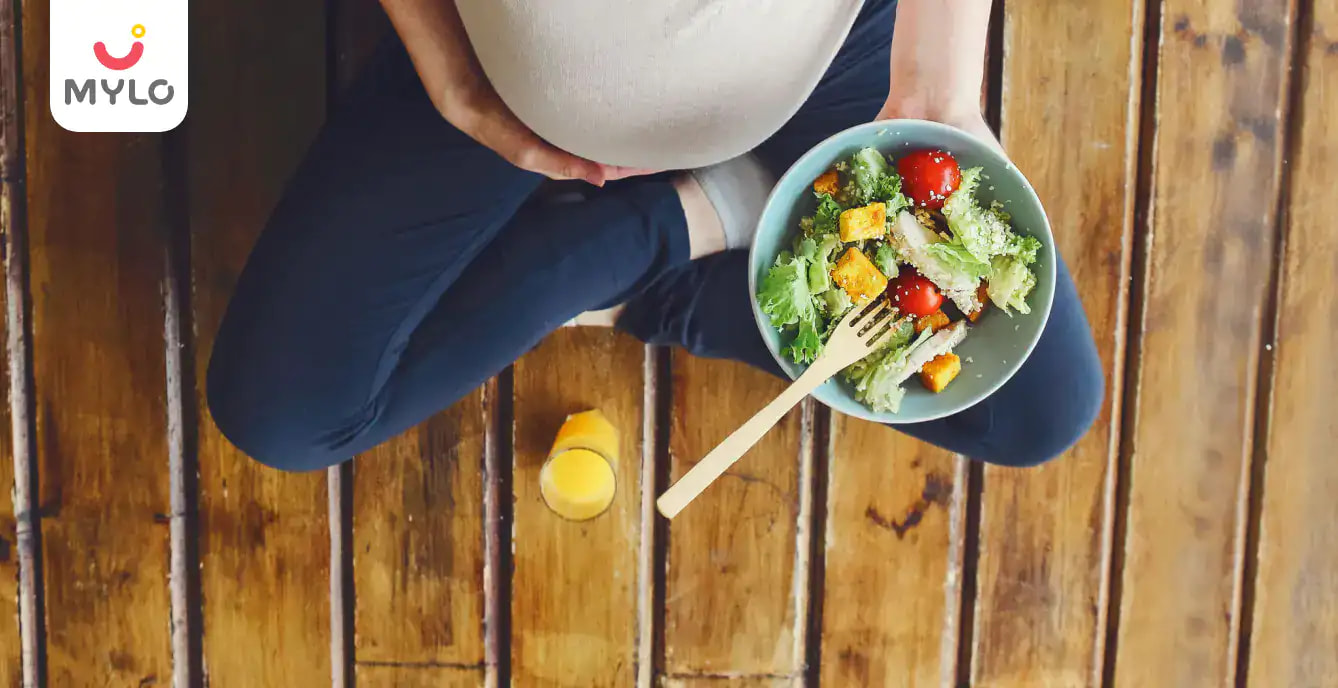Home

Third Trimester

Which Food items to Include & Avoid During Third Trimester of Pregnancy for optimum nutrition?
In this Article

Third Trimester
Which Food items to Include & Avoid During Third Trimester of Pregnancy for optimum nutrition?
Updated on 23 February 2023



Medically Reviewed by
Kusum Sabharwal
Obstetrician & Gynecologist - MBBS| DGO
View Profile

The beginning of your third trimester (7th month) will be from the 28th week of your pregnancy where massive body changes will take place. As your bump gets bigger you might experience more discomfort every single day. To ensure that your child is growing well in the womb you must consume a nutritious and balanced diet. Without a second thought, you’ll be flooded with suggestions related to foods as you enter your third trimester of pregnancy.
According to the health experts, you must intake extra 450 calories during the third trimester because that provides the daily nutritional value to the child growing inside the womb. You can consult a certified nutritionist or a gynecologist about the foods that you can safely consume and the food items that you must avoid according to your health. Avoid overeating because you might experience severe hunger pangs during this month.
Foods to Consume During Third Trimester of Pregnancy
Your diet plan for the 28th week of your pregnancy (7th month) should include all essential nutrients like:
1. Food rich in protein and iron
To prevent anemia, preterm labor, and hemorrhage, your body will need an extra dose of iron and you can include spinach, turnips, red meat, soybeans, apricots, poultry foods, sesame seeds, and pumpkin in your diet. Intake of protein-rich foods will ensure the healthy growth of the baby and for that, you can consume lentils, eggs, chickpeas, meat, dairy products, and pulses. You must intake approximately 27 mg of iron and 75-100 grams of protein daily.
2. Food rich in folic acid
Consuming folic acid-rich food during pregnancy helps in lowering the risk of neural tube defects in babies. You must consume whole wheat bread, oranges, dark leafy vegetables, fortified cereals, and oatmeal. Make sure you include 400 mg of folic acid daily in your diet plan.
3. Food rich in calcium
Consuming calcium-rich food during the 7th month of pregnancy will ensure the healthy development of bone structure and skeletal system in your baby’s body. You can include yogurt, tofu, milk, cheese, and paneer in your diet. Try to consume at least 1000 grams of calcium daily.
4. Food rich in fiber
Constipation is common during pregnancy and to avoid that you must consume fiber-rich foods and plenty of fluids. You must include legumes, whole grains, seasonal fresh fruits, and colorful vegetables.
5. Food rich in magnesium
Magnesium is essential if you are consuming calcium because it helps in absorbing it. Magnesium helps in relaxing the muscles, prevents leg cramps, and prevents premature delivery. You must consume at least 350 mg of magnesium daily and you can get that from certain food items like- pumpkin seeds, black beans, almonds, barley, and oat bran.
6. Food rich in Vitamin C
For the proper absorption of iron in your body during pregnancy it is essential to consume foods like melons, broccoli, lemons, green pepper, and oranges.
7. Food rich in DHA
If you wish to have a baby with a genius mind then you must consume foods rich in DHA. According to the experts, you should consume at least 200 mg of fatty acid, and you can achieve this by eating flax seeds, fish oil, tuna (fatty fish), and walnuts.
Constipation, heartburn, fatigue, and swollen hands and feet are some of the common symptoms that you might experience during the third trimester of pregnancy. However, by eliminating certain food items from your diet, the discomfort of such symptoms can be alleviated.
You may like: Guide: Following a vegetarian diet during third trimester of pregnancy
Foods to Avoid During Third Trimester of Pregnancy
Here is a list of foods/things that you must strictly avoid during your 7 month pregnancy:
-
Caffeine and aerated beverages
-
Spicy and oily foods
-
Food's high in sodium
-
Junk food
-
Alcohol
-
Processed foods
-
Smoking
-
Packed and canned food
-
Artificial sweeteners and sugar
Eating frequent short meals are quite beneficial rather than consuming large meals with long durations. To stay healthy, fit, and active during third trimester of pregnancy, prenatal yoga and walking are also important along with the consumption of a healthy diet. Keep a close check on your weight gain as excessive or very less weight gain can be harmful for you during the labor and delivery time. No matter how severe your cravings are do not compromise with homemade healthy meals.





Medically Reviewed by
Kusum Sabharwal
Obstetrician & Gynecologist - MBBS| DGO
View Profile


Written by
Loveleen Gupta
A working mother with more than two decades of experience in writing for the publishing industry and digital space, Loveleen Gupta loves dabbling in creative writing also. A graduate from Miranda House, she uses her personal experiences to express herself.
Read MoreGet baby's diet chart, and growth tips

Related Articles
RECENTLY PUBLISHED ARTICLES
our most recent articles

Labour & Delivery
Breech Baby: Causes, Risks, Flipping & Delivery

Labour & Delivery
Everything You Need to Know About the Different Stages of Labour
Vitamins & Supplements
What are the Symptoms of Vitamin D Deficiency in Children?

Health Tips
Top 5 Effective Ways to Prevent Diabetes in Children

Vaccinations
Why and When Is the Tetanus Toxoid (TT) Vaccine Given During Pregnancy?
How to Guide Your Child to Make Healthy Food Choices and Get the Required Nutrition?
- How Can You Manage Asthma During Pregnancy?
- Water Breaking Early: Signs, Causes & Next Steps
- Foods to eat for healthy fetal brain development
- How touch can shape babies’ brain development
- In What Situations Can a Doctor Recommend You to Take Bed Rest During Pregnancy?
- How to Hold a Newborn Baby
- Why do you need to burp your baby and what are the best positions to burp your baby?
- Carpal Tunnel Syndrome or CTS During Pregnancy : Symptoms, Causes & Treatment
- Can Nipple Stimulation Help in Inducing Labor Naturally?
- Top 10 pregnancy do's and don'ts that is crucial to have a healthy baby
- 7 Excellent Sources of Omega-3 Fatty Acids For Expecting Mothers
- Epidural: Advantages, Disadvantages & Risks
- Dizziness During Pregnancy
- Bed Rest During Pregnancy: Does It Really Help?


AWARDS AND RECOGNITION

Mylo wins Forbes D2C Disruptor award

Mylo wins The Economic Times Promising Brands 2022
AS SEEN IN
















- Mylo Care: Effective and science-backed personal care and wellness solutions for a joyful you.
- Mylo Baby: Science-backed, gentle and effective personal care & hygiene range for your little one.
- Mylo Community: Trusted and empathetic community of 10mn+ parents and experts.
Product Categories
baby carrier | baby soap | baby wipes | stretch marks cream | baby cream | baby shampoo | baby massage oil | baby hair oil | stretch marks oil | baby body wash | baby powder | baby lotion | diaper rash cream | newborn diapers | teether | baby kajal | baby diapers | cloth diapers |








